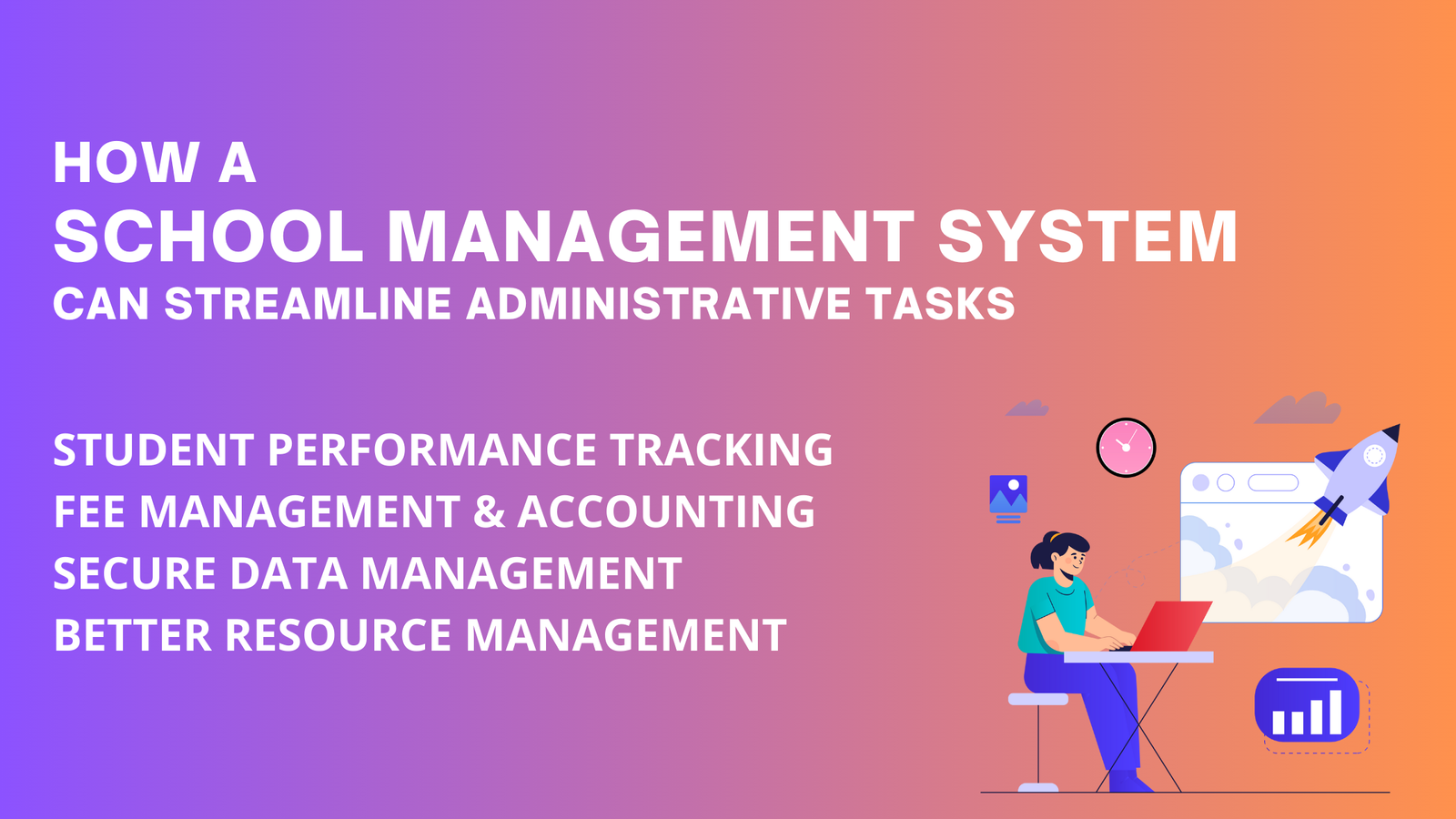
Essential Features Every School Management System Should Have
In today's digital era, educational institutions must embrace technology to enhance their administrative and academic processes. A school management system (SMS) serves as an all-in-one solution, streamlining operations and improving efficiency. Whether you're developing or choosing an SMS, understanding its essential functionalities is crucial. This guide highlights the school management system features that every educational institution should have for smooth and effective management.
1. Student Information Management
The core function of any school management system is handling student records. An efficient SMS should store and manage student data, including:
-
Personal details (name, date of birth, address, etc.)
-
Admission details
-
Attendance records
-
Academic performance
-
Disciplinary records
-
Medical history
This centralized database ensures easy retrieval and management of student information while maintaining confidentiality and security.
2. Attendance Management
Tracking student and staff attendance manually is time-consuming and prone to errors. A robust attendance management module should offer:
-
Biometric or RFID-based attendance tracking
-
Online attendance marking for virtual classes
-
Daily, weekly, or monthly attendance reports
-
Automated notifications to parents for absentees
This feature enhances discipline, reduces errors, and keeps parents informed about their child’s attendance.
3. Fee Management & Online Payments
Managing school fees and other financial transactions is crucial for smooth operations. An SMS should provide:
-
Online payment gateway integration
-
Automated fee generation and invoicing
-
Fee receipt generation
-
Payment reminders via SMS and email
-
Scholarship and discount management
This feature reduces administrative workload and offers convenience to parents by enabling cashless transactions.
4. Exam & Result Management
A comprehensive exam management system simplifies the assessment process by providing:
-
Customizable exam schedules
-
Online exam support
-
Automated grading and report card generation
-
Performance analytics
-
Rank calculations
With these tools, teachers can evaluate students efficiently while providing valuable insights into academic performance.
5. Timetable & Scheduling
Creating and managing class schedules can be challenging, especially for large schools. A timetable management module should include:
-
Auto-generation of timetables based on predefined rules
-
Teacher-subject mapping
-
Substitute teacher allocation
-
Online access to students and teachers
An automated timetable system optimizes resource allocation and minimizes conflicts.
6. Parent-Teacher Communication
Effective communication between parents and teachers is essential for student success. A communication module should provide:
-
SMS and email notifications
-
Parent-teacher meeting scheduling
-
Chat or messaging system
-
Digital notices and circulars
With real-time communication, parents stay updated on their child's progress and school activities.
7. Library Management
A school library requires systematic management to track books and student access. Key library management features include:
-
Cataloging books with ISBN numbers
-
Issuing and returning books
-
Fine calculation for late returns
-
Student and teacher book access records
-
Digital library support
With an automated system, schools can efficiently manage their library resources and reduce manual work.
8. Transport Management
For schools offering transportation services, an SMS should include a transport management module that provides:
-
Route and vehicle tracking
-
GPS integration for real-time monitoring
-
Driver and vehicle information
-
Pick-up and drop-off alerts for parents
This feature ensures student safety and allows parents to track their child’s location in real time.
9. Staff & Payroll Management
Managing school staff, salaries, and benefits requires a structured system. A payroll management module should include:
-
Staff records (personal details, qualifications, work history)
-
Salary calculation and payslip generation
-
Tax and compliance management
-
Leave and attendance tracking
Automating payroll processes reduces administrative workload and ensures accurate salary disbursement.
10. Learning Management System (LMS) Integration
As online learning becomes more common, integrating an LMS with a school management system is crucial. An LMS should provide:
-
Online course creation and management
-
Digital assignments and quizzes
-
Virtual classrooms and recorded lectures
-
Student progress tracking
-
Discussion forums
This feature enhances e-learning and enables hybrid education models.
11. Hostel & Accommodation Management
For boarding schools, hostel management is an essential feature. It should include:
-
Room allocation and tracking
-
Student movement records
-
Meal planning and attendance
-
Fee collection and billing
With an automated hostel system, schools can efficiently manage accommodation facilities and ensure student safety.
12. Inventory & Asset Management
Schools handle various assets, from classroom supplies to IT equipment. An inventory management module should allow:
-
Tracking of school assets
-
Stock management
-
Purchase and vendor details
-
Maintenance scheduling
This ensures efficient resource allocation and prevents losses or mismanagement.
13. Multi-School & Multi-Branch Management
For educational groups with multiple campuses, an SMS should offer multi-branch management features like:
-
Centralized control for multiple schools
-
Inter-branch data sharing
-
Standardized academic policies
-
Consolidated reporting
This feature simplifies administration and ensures uniformity across branches.
14. Security & Access Control
School data security is a top priority. An SMS should have robust security features like:
-
Role-based access control (RBAC)
-
Encrypted student and staff data
-
Regular backups and disaster recovery
-
GDPR and other data protection compliance
A secure system prevents data breaches and ensures privacy.
15. Reports & Analytics
A powerful reporting module helps schools make data-driven decisions. Essential features include:
-
Customizable reports (attendance, academics, finance, etc.)
-
Data visualization with charts and graphs
-
Predictive analytics for student performance
These insights help administrators improve school operations and student outcomes.
Conclusion
A well-equipped school management system improves efficiency, enhances communication, and simplifies administrative tasks. From student information management to LMS integration, each feature plays a crucial role in school operations. When selecting an SMS, ensure it includes these must-have features in school software to meet the institution’s unique needs.
By implementing a robust SMS, schools can focus on delivering quality education while optimizing management processes. If you're planning to develop a school management system, incorporating these functionalities will ensure its success in today’s competitive educational landscape.




